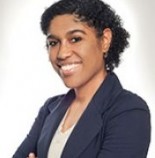Your skin is your largest organ, and because it's so porous, chemicals can easily transfer from your epidermis to your blood stream. Traces of dangerous chemicals have been located in blood, urine and even breast milk.
While the European Union bans over 1,000 chemicals, the U.S. has only red-flagged 11 total. The U.S. FDA has not been give the governmental authority to properly test for safety (nor recall) dangerous products.
This can make it incredibly overwhelming when you're out shopping. Fortunately, the EWG has done all of the research for you... you no longer have to be a chemist to successfully shop for safe products.
EWG Verified products undergo stringent analysis. The following standards must be met:
- Must score "green" within the Skin Deep rating system.
- Cannot contain any ingredients on the Skin Deep unacceptable list.
- Fully disclose ALL ingredients, including the umbrella terms of "fragrance," which can encompass approximately 3,000 ingredients.
- No proprietary ingredients.
- Must be fully transparent.

 Nneka Leiba has a passion for the environment and environmental issues. This passion led her to earn several related degrees, including a Master of Philosophy in zoology from the University of the West Indies and a Master of Public Health from Johns Hopkins University.
Nneka Leiba has a passion for the environment and environmental issues. This passion led her to earn several related degrees, including a Master of Philosophy in zoology from the University of the West Indies and a Master of Public Health from Johns Hopkins University.